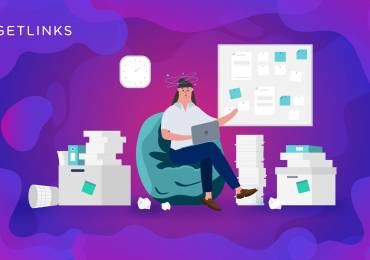The Skills and Mindset You Need for Work in the Future

Adaptive Learning is the key to success in the new era of work, let’s find out why
Think back five years, now ten, then twenty. Think how much the world we live in has changed. We’ve seen the rise of the internet, followed by the creation of social media platforms, the creation of tiny portable computers that live in our pockets at all times (initially created for calls, then texts, but now holding a more all-encompassing role) and more recently self-driving cars. Merely at a consumer-level, we’ve changed the way we travel, eat and communicate.
But, more importantly, the way we work is undergoing a complete transformation. We need an adaptive talent revolution or it could cost us billions.
Digital technologies hold even greater power for enterprise. Since the turn of the century, these emerging technologies have been propelled by the sheer volume of data we generate as a society.
But what are these technologies and what impacts could they could have, if we capitalise on their full potential?
Getting to know The Holy Trinity of Tech

Internet of Things
First of all, let’s consider Internet of Things (IoT), which as the name suggests is the interconnection via the internet of computing devices embedded in everyday objects, enabling them to send and receive data. McKinsey estimates that by 2025 IoT will have a potential total economic impact of as much as $11.1 trillion per year. Not only that, but IoT makes it possible to both apply data-driven decision making to new realms of human activity and to enable companies to get far more out of their physical assets.
Blockchain
Next of course, and new to the party, is blockchain. Blockchain forms part of the Distributed Ledger Technologies (DLT) family and is essentially a distributed database that allows for an irrefutable trail of transactions across multiple computers. We’ve most recently seen the transformation of finance and banking, through the launch of cryptoassets, such as Bitcoin. But there is no reason why blockchain couldn’t also have far-reaching impacts on identity, property title, communication, decentralised coordination or insurance. Wherever there are transactions on a complicated supply chain network, blockchain can play a significant role.

Artificial Intelligence and Machine Learning
Of course, we must also consider the most developed of these technologies, artificial intelligence (AI) and machine learning (ML). AI is already having unquestionable impacts on economies worldwide. However, by 2030, China for example stands to benefit the most globally, China’s global gross domestic (GDP) to potentially become 26.1% higher in 2030; the equivalent of an additional $7 billion due to the impact of AI. Now we often hear about AI and ML’s impact in a context of job replacement, but contrary to popular belief, we’ve been worried about the potential of computers or robots taking over, for years. However, innovations around AI and ML are increasing at a rapid speed, brought on by the amount of data, compute power, algorithmic techniques available today. AI and ML will change every industry, that we know for certain.
To say this fact does not call for a significant shift in the workplace would be deceptive. AI will require employees to learn new skills within the next five years. Projections show that 1.8 million jobs will be eliminated by AI. However, the technology will also create 2.3 million jobs, showing that we stand to gain half a million jobs, which, quite frankly, should be applauded.
Artificial Intelligence ≠ Automation
We must also bear in mind, that many of the fears surrounding AI, are in fact, related to automation, which is slightly different, despite the terms are often being used interchangeably. AI is about trying to make machines mimic, and eventually supersede human behaviour and intelligence. Automation need not have anything to do with AI, instead, it serves to control and monitor the production and delivery of various goods and services. It will impact data processing, collection and analysis and could affect 50% of the world economy, 1.2 billion employees and $14.6 trillion in wages. In fact, Japan, China, US and India account for over half of these totals.

As I mentioned, these technologies have the power to completely revolutionize ways of working worldwide. But how is work right now, you ask?
Well, as it turns out underemployment and unemployment is high worldwide; with 850 million people under-utilised in the United States, the United Kingdom, Germany, Japan, Brazil, China, and India alone. So perhaps, the future of work promises a brighter outcome. Especially, as we are currently at a point where value creation is centred on cost-cutting and operating efficiencies, rather than more human-centric motivations.
So how can we make sure that these disruptive technologies serve not as a barrier, but as an opportunity to transform the way we work?
First of all, it goes without saying that many jobs and career paths are here to stay. There are ten professions in particular where talent is scarce and the need for it ever-increasing: cybersecurity, cloud computing, networking and wireless, application development, infrastructure as a services, enterprise architecture, virtualisation, leadership and management, analytics and big data & data centre.
But evidently, technological advancements will shift balance slightly and the ability to learn new skills and adapt will become all the more important. Particularly, as these new technological advancements are coupled with demographic and socioeconomic changes, urbanisation and globalisation.
Multinational professional services network, Deloitte stipulates that employees need to focus on three shifts. Firstly, shifting the view of what the objective of work is: from efficiency to expanding value delivered to customers and other participants, secondly, fundamentally redefining work: from executing routine tasks to addressing unseen problems and opportunities, to finally, cultivating and using our human qualities (from skills to capabilities).
The same occupation in ten years will require a higher level of skills in order to be valued and continue to be effective. It will be paramount to be more strategic and many of the new skills that are required will be centred around identifying challenges and opportunities. Your employer will want you to identify unseen barriers and opportunities, find approaches to come up with a resolution and reflect on how a future solution could generate more value.

Work with technology, not against it
Alongside this strategic mindset, it will become essential to be able to work with advanced digital technologies and not against them.
Data collection, processing and physical work in highly predictable environments will decline. More people will have to work with technology to succeed, while their work will require empathy, judgement, creativity and so forth to succeed. There will be an ever-increasing demand for understanding of the interplay of IoT, blockchain, AI, ML, automation and how they come together.
Finally, to fully capitalise on the potential that digital technologies create, we must make increased connections. Surprisingly, more than four billion people are still offline and the value of connecting these people is significant, as they enter the global digital economy, the world of work will transform in fundamental ways and at an unprecedented pace.
We do not yet know the full scope of what AI, ML, IoT, blockchain or automation can have on the world of work. However, we know for sure that these technologies combined, will require new and more meaningful skills from humans to harness their full potential. Emerging technologies provide us with the tools to find innovative ways to work to seize their true potential. If we do not adapt and embrace new skills in the coming decade, not are we missing out on enhancing our lives through AI, ML, IoT, blockchain and automation, but we also stand to lose billions of dollars.
About the author:
Naima Camara is a policy and research coordinator for an innovation centre in London. She specialises in writing about advanced digital technology trends around blockchain, immersive, artificial intelligence and how these technologies converge to revolutionise the economy.




Well, it’s always a pleasure to read posts with such insights.